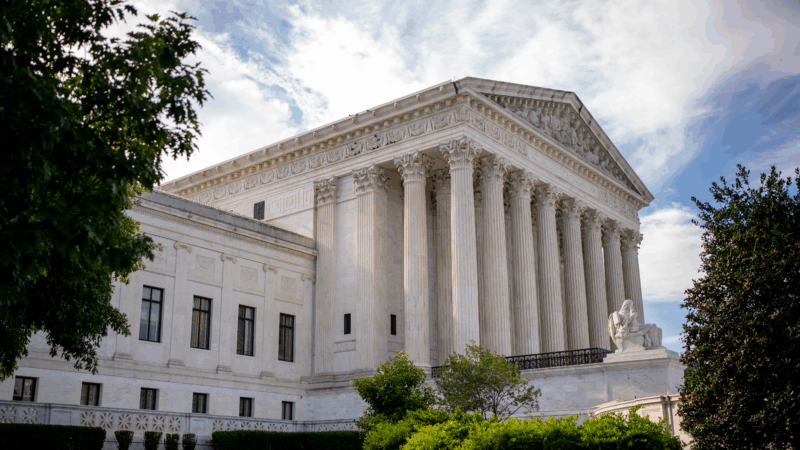Hate groups in the US decline but their influence grows, report shows
White nationalist demonstrators walk into the entrance of Lee Park surrounded by counter demonstrators in Charlottesville, Va., Saturday, Aug. 12, 2017.
By Terry Tang
The number of white nationalist, hate and anti-government groups around the U.S. dropped slightly in 2024, not because of any shrinking influence but rather the opposite. Many feel their beliefs, which includes racist narratives and so-called Christian persecution, have become more normalized in government and mainstream discourse.
In its annual Year in Hate and Extremism report, released Thursday, the Southern Poverty Law Center said it counted 1,371 hate and extremist groups, a 5% decline. The nonprofit group attributes this to a lesser sense of urgency to organize because their beliefs have infiltrated politics, education and society in general. Some of the ways they have done this are through pushing for bans on diversity, equity and inclusion initiatives, book bans and protests of drag story hours, the report says.
Last year, there were 533 active hate groups. These include groups who express views that are anti-LBGTQ+, anti-immigrant, antisemitic and anti-Muslim. This number has been steadily declining since reaching a historic high of 1,021 in 2018.
“The trends have slightly sort of gone up and down but let’s just say generally, since our tracking, have increased. And that’s not just on a total numbers level but also on a per capita,” said Rachel Carroll Rivas, interim director of the SPLC’s Intelligence Project.
The number of anti-government groups last year totaled 838, an increase from recent years, according to the law center based in Montgomery, Alabama, that tracks racism, xenophobia and far-right militias. These groups see the federal government as “tyrannical” and include militias and self-described sovereign citizens.
Male supremacy also continues to emerge as an influential hate group. The SPLC documented seven new male supremacist hate groups, making the total 16. Their rhetoric espouses misogyny and strict gender roles. Their rising influence came during an election year when the country saw a woman of color be the first presidential nominee for a major political party.
“I’m not sure it’s a direct result of the candidacy of Kamala Harris,” Rivas said. However, SPLC researchers went into chatrooms of white supremacist organizations during the election and found “intense vilification, the claiming of demonization of Harris as well as just the pushing of the idea falsely that women would not be qualified.”
Some people on the far right have also pushed a belief that white Christian culture is being threatened by a “demographic crisis” including fewer births.
“Politicians, pundits and provocateurs on the right have turned toward demonic language to tar those who disagree with them,” the report states.
Last year’s report found “record numbers” of white nationalist and anti-LGBTQ groups in 2023. The analysis highlighted how far-right groups tried to waylay democracy through disinformation, false conspiracy theories and threats to election workers. It also examined how supporters of Christian supremacy used similar topics to organize a movement toward authoritarianism.
The SPLC is a liberal advocacy organization that, besides monitoring hate groups, files lawsuits over justice issues and offers educational programs to counter prejudice. Frequently criticized by conservatives as biased, the nonprofit has faced lawsuits for its designation of some organizations as hate groups.
The report’s release comes as a Los Angeles college professor makes his first public appearance since he was severely injured in a hit and run that he reported as a hate crime. He is scheduled to speak Thursday morning at the Chinese American Museum in downtown Los Angeles.
Aki Maehara, 71, was riding his electric bicycle in Montebello, 10 miles (16 kilometers) east of downtown Los Angeles, on April 29 when he says he heard a driver yell a racial slur. Maehara says a car then struck him and the driver fled. He was hospitalized with a concussion, neck injury, cheek bone fracture and bruises and swelling up and down his body.
Maehara, who is Japanese American, teaches a course on the history of racism in the U.S. at East Los Angeles College.
The Montebello Police Department is investigating.
Photos of his injuries posted to a GoFundMe page have been shared multiple times on social media with users calling for hate crime charges. The crowdsourcing campaign has raised almost $77,000 for Maehara.
Republicans say Clintons risk contempt of Congress for not testifying on Epstein
House Republicans are seeking testimony as part of their investigation into convicted sex offender Jeffrey Epstein. The Clintons say they've already provided in writing what little they know.
FTC accuses AI search engine of ‘rampant consumer deception’
Federal officials say a company that operates hundreds of landing pages for AI answers is running an operation that has duped thousands of users, who were unable to stop costly monthly charges.
‘My role was making movies that mattered,’ says Jodie Foster, as ‘Taxi Driver’ turns 50
Foster was just 12 years old when she starred in the 1976 film. "What luck to have been part of that, our golden age of cinema in the '70s," she says. Her latest film is Vie Privée (A Private Life).
Supreme Court appears likely to uphold state bans on transgender athletes
To date, 27 states have enacted laws barring transgender participation in sports.
Keep an eye out for these new books from big names in January
The new year begins with a host of promising titles from George Saunders, Julian Barnes, Jennette McCurdy, Karl Ove Knausgaard and more. Here's a look ahead at what's publishing this month.
Want to play a Tiny Desk concert? The 2026 Contest is now open for entries
The 2026 Tiny Desk Contest, our annual search for the next great undiscovered artist, is now officially open for entries.







